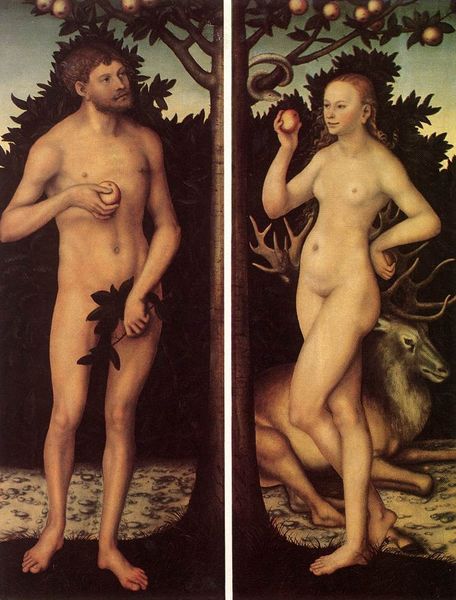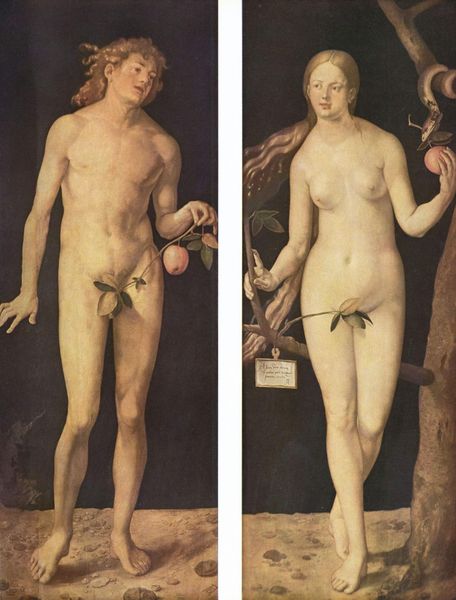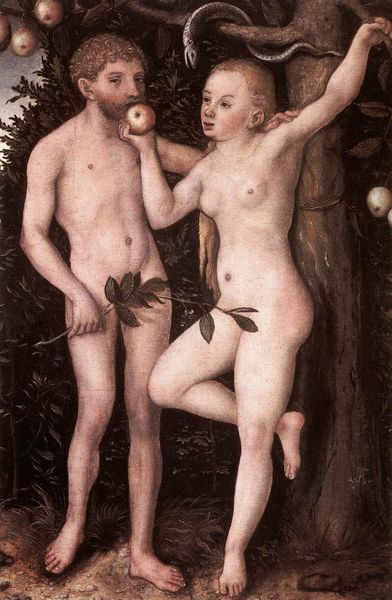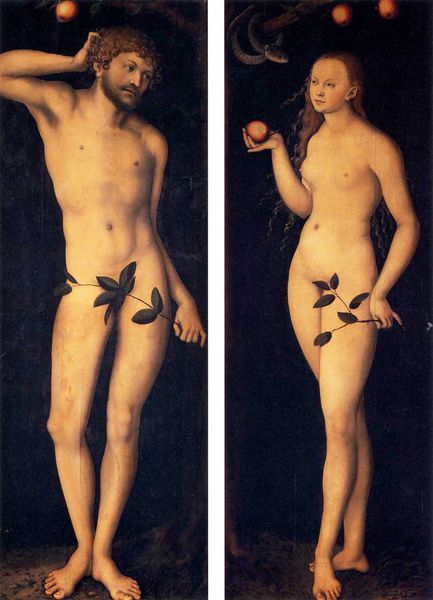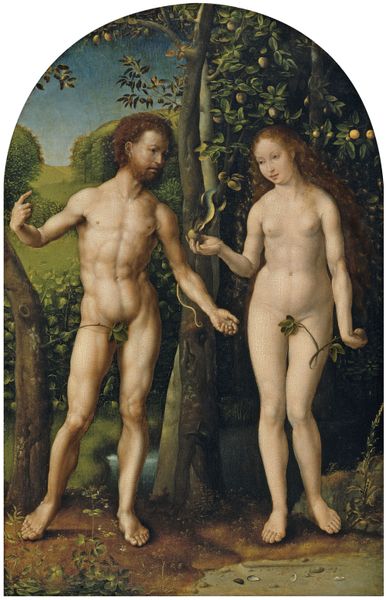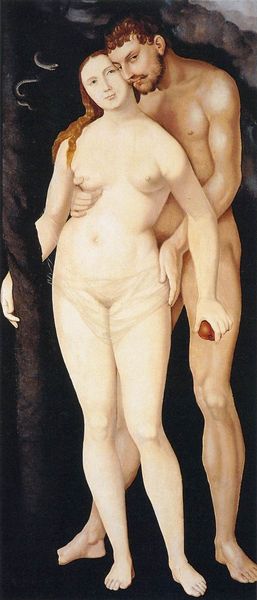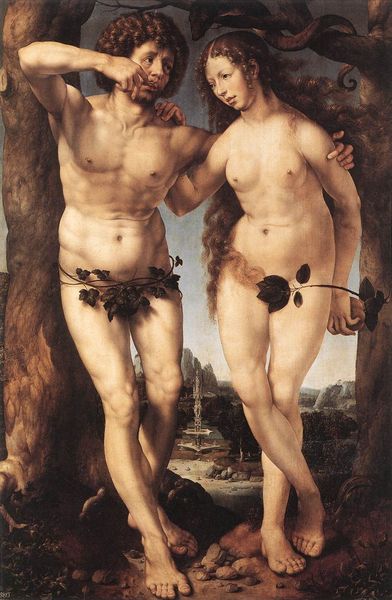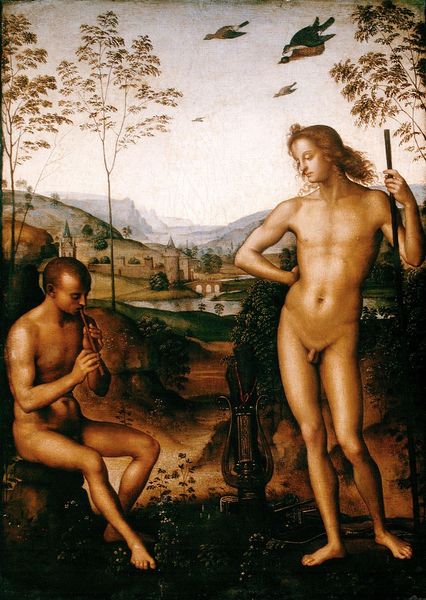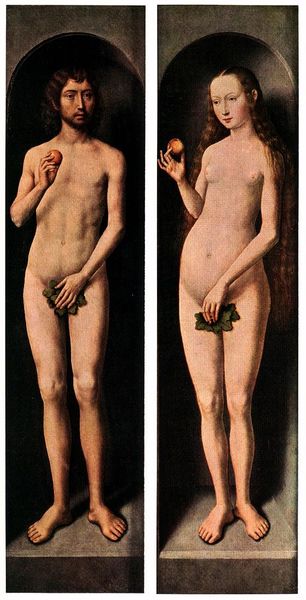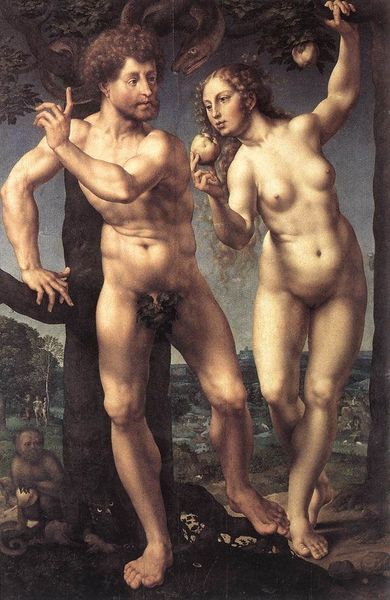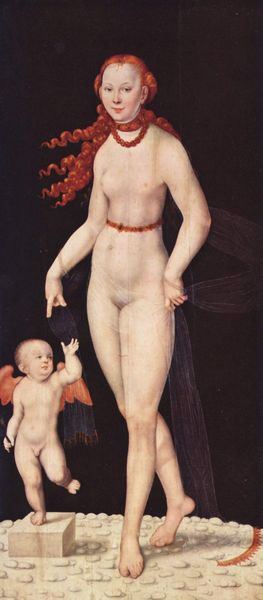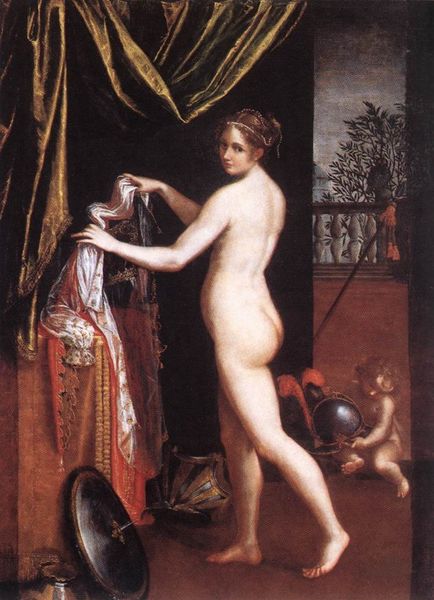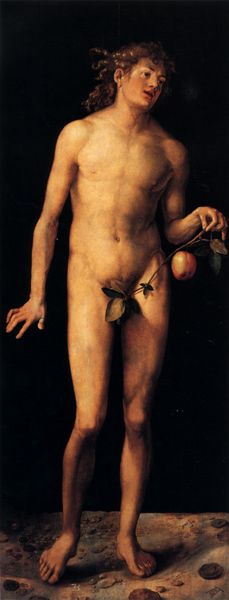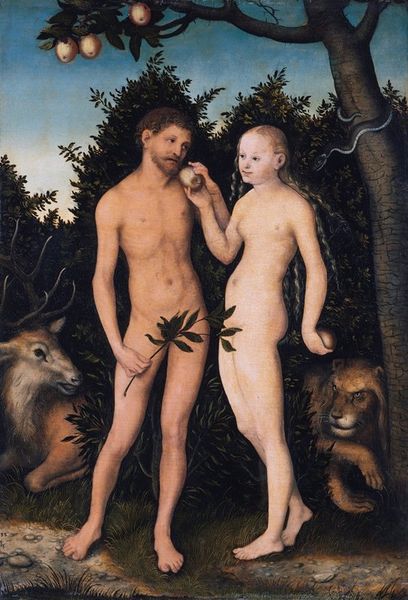
painting, oil-paint
#
allegory
#
painting
#
oil-paint
#
figuration
#
11_renaissance
#
christianity
#
men
#
human
#
history-painting
#
northern-renaissance
#
nude
Dimensions: 90 x 170 cm
Copyright: Public domain
Lucas Cranach the Elder painted "Adam and Eve" with oil on wood in the early 16th century, during the German Renaissance. Cranach was a court painter in Wittenberg, a city central to the Protestant Reformation. Instead of the Italian Renaissance ideal of the body, Cranach's figures reflect northern European ideals of beauty: slender figures and simplified forms. What does it mean to depict this famous scene of disobedience and shame in such an appealing way? Perhaps Cranach's "Adam and Eve" reflects the changing attitudes towards humanism, the body and religion at the time. Art historians look into these questions by understanding the political and religious context in which the artwork was made, considering the artist's biography and examining the cultural values of the time. By researching these historical sources we can better understand the complex relationship between art, culture, and society.
Comments
No comments
Be the first to comment and join the conversation on the ultimate creative platform.
